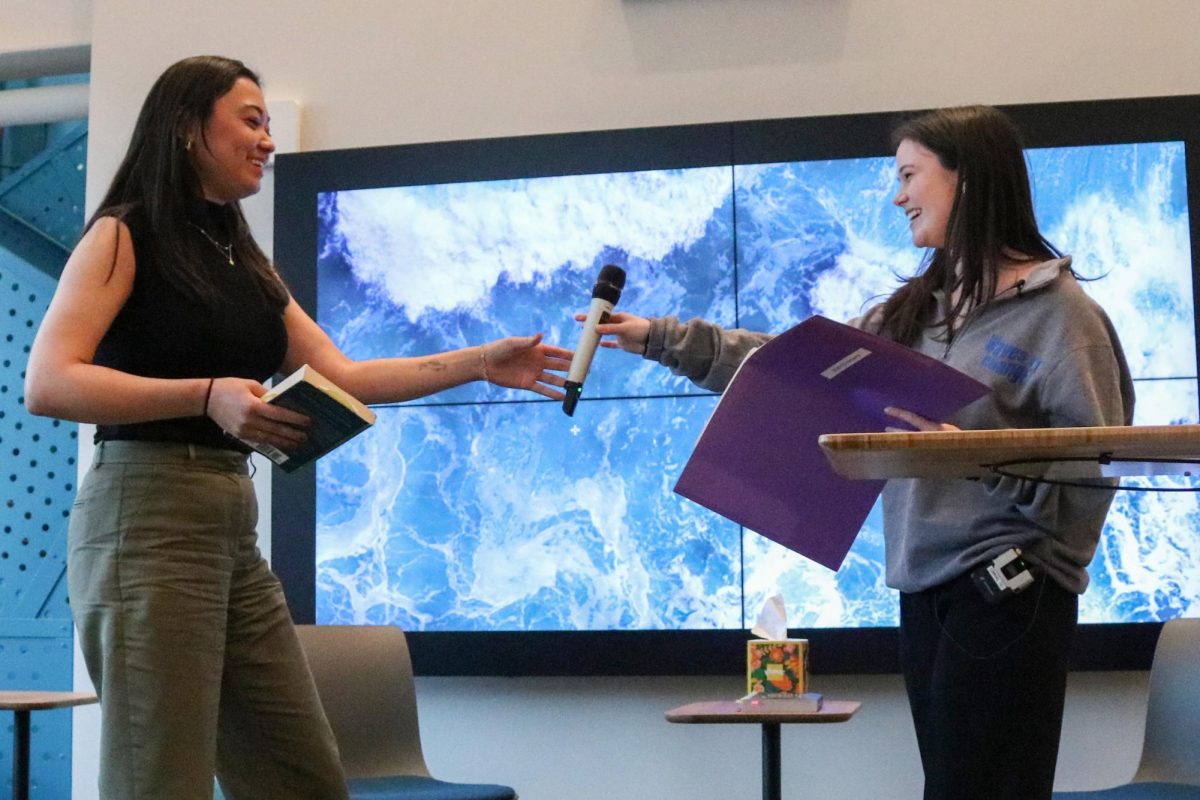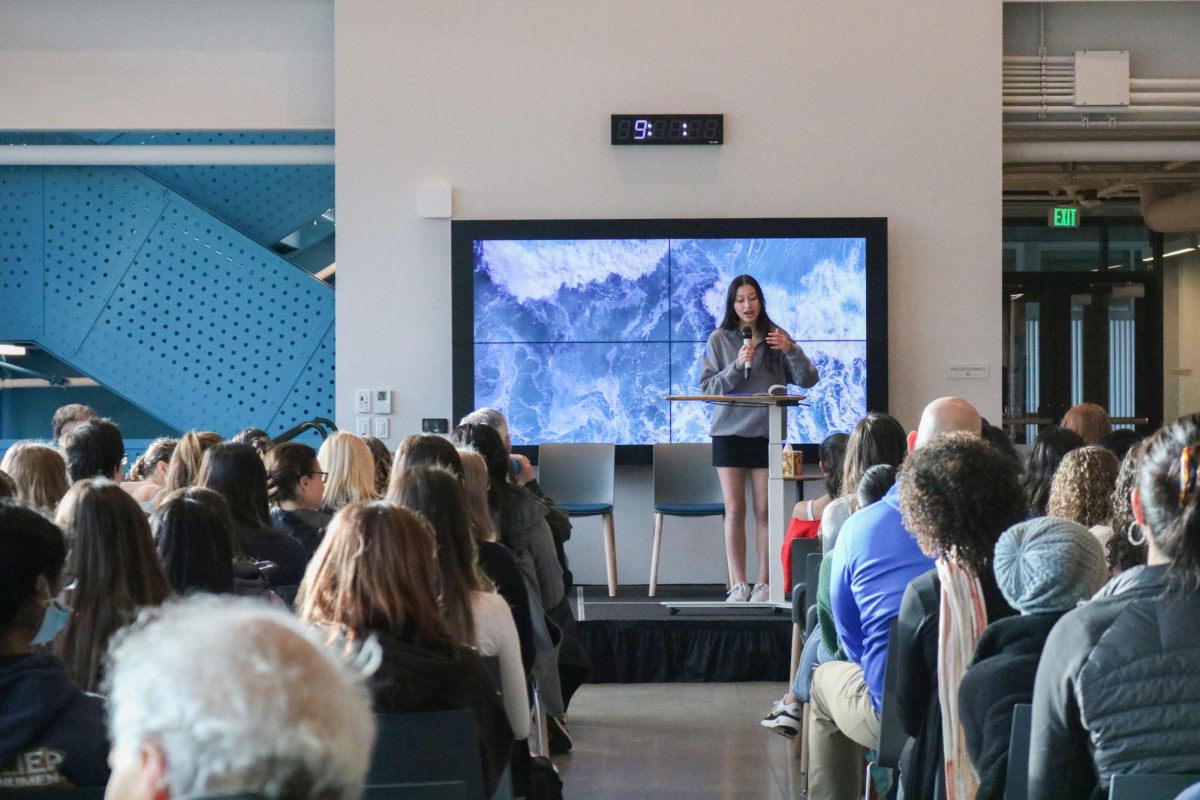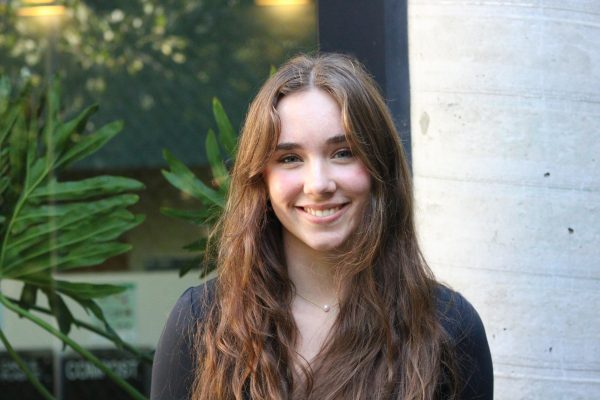After more than a year of dedication and work, the “Waves-of-Change” themed Student Organized Consent Conference made its big splash on Feb. 10 in UPrep’s newly constructed ULab.
What organizers called the first-ever consent conference created by high school students for high school students in Seattle received 235 sign-ups from students, volunteers, parents and chaperones. Senior Maddie Takamiya, one of the five leaders of SOCCS including seniors Wynne Johnson, Patrick Northcott, Hana Hyde, and Social and Emotional Learning Coordinator Emily Schorr Lesnick, described the magnitude of enthusiasm.
“I was blown away by how much support that we had along the way,” Takamiya said. “I was really surprised and grateful for everybody who helped to chip into the cause and believed in the cause.”

For the bulk of the seven-and-a-half-hour event, participants attended workshops hosted by 41 speakers, all with backgrounds in sexual health, consent or assault. To start the conference, attendees from more than 11 schools and organizations met and heard from a survivor panel. Finally, New York Times bestselling author Chanel Miller discussed her personal story, which gained traction after she was assaulted on the Stanford campus in 2015.
In the midst of it all, Hyde, who worked on SOCCS for her LaunchPad, reflected on how far the organizers had come as a group.
“I got up on stage with Wynne and Patrick and Maddie and ESL [Schorr Lesnick] and that’s when I was like, wow,” Hyde said. “We’ve worked so hard, and so it was really exciting to just come back to that group of five and be like, Look at what we did.”
In November 2023, Johnson, Northcott and Takamiya went to the Georgetown Day School Sexual Assault and Consent Summit in Washington, D.C. When Johnson and the other students returned, they decided they wanted to establish a similar conference in their city.
 “We were like, ‘This is the first in-person Georgetown Day School summit they’ve had since COVID, and there was no one from the West Coast there,’” Johnson said. “I think it was just our school and The Northwest School…So we were like ‘We should make something that people from the West Coast can experience, something to educate members of our community.’”
“We were like, ‘This is the first in-person Georgetown Day School summit they’ve had since COVID, and there was no one from the West Coast there,’” Johnson said. “I think it was just our school and The Northwest School…So we were like ‘We should make something that people from the West Coast can experience, something to educate members of our community.’”
Since the proposal of a Seattle-based conference, the leaders advertised using posters, created social media posts and sought out educators to speak.
Prior to the conference, Schorr Lesnick established herself as a major contributor, but she said that the project was mostly student-led.
“It’s not just like it happens behind the scenes,” Schorr Lesnick said. “I’m really grateful to them because the questions that they ask. The things that they push forward are what is making this conference what it is.”
Senior Leela Shankar attended the conference and felt that it could create change in the lives of both the attendees and their communities.
“The people that went became much more informed,” Shankar said. “I think those people are going to be able to go out and not just educate people, but implement what they’ve learned in the real world. I think as it grows, it’s gonna continue to make an impact.”
In addition to the conference being informative, it fostered a sense of community. For Hyde, this was especially true during some of the final moments of the event.
“I remember during Chanel’s presentation, she said something along the lines of … a total stranger had read her book and invited Chanel to her wedding because Chanel helped her trust in men again, ” Hyde said. “I just started sobbing, and the teacher next to me started crying. And we were kind of sharing this really beautiful moment.”
To build on the first SOCCS conference, student leaders want to continue the event even after the current organizers graduate. To make this hope a reality, they have applied for a money-matching grant for private schools.
With the critical help of grant funding, the SOCCS leaders could ensure the conference continues annually.
“I’m hoping that the future is that this conference will continue to grow, continue to evolve into what it needs to be for this community,” Schorr Lesnick said. “I mean UPrep, but I also mean beyond that. It will be a model for UPrep showing, in addition to leading a life of learning, that we as a school care about all students, not just the ones that go to UPrep.”



